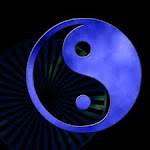I was watching one of the poker shows on TV, I try to record most of them. One of the announcers asked the other, "I wonder what The Art of War (Sun-Tzu) has to say about limping?"
Being a advocate of The Art of War and Poker, I thought I'd take a look at it. There has already been a good book on the subject written by David Apostolico, Tournament Poker and the Art of War, and there is also a web site devoted to it. Sun Tzu's Art of Poker
From "The Art of War" by Sun-Tzu
In battle, there are not more than two methods of attack:
the direct -betting/raising- and the indirect -checking/limping-;
These two in combination give rise to an endless series of maneuvers.
The direct and the indirect lead on to each other in turn.
It is like moving in a circle — you never come to an end.
Masking strength with weakness is to be effected by tactical dispositions.
Thus one who is skillful at keeping the enemy on the move maintains deceitful appearances, according to which the enemy will act.
He sacrifices something, (so) the enemy may snatch at it.
- Simulated disorder postulates perfect discipline,
- Simulated fear postulates courage;
- Simulated weakness postulates strength.
If we do not wish to fight, we can prevent the enemy from engaging us even though the lines of our encampment be merely traced out on the ground. All we need do is to throw something odd and unaccountable in his way -Randomness.
- The rule is, not to besiege walled cities if it can possibly be avoided.
By holding out advantages -showing weakness- to him, he can cause the enemy to approach of his own accord; or, by inflicting damage, he can make it impossible for the enemy to draw near.
Whoever is first -to act-with-active or passive Aggression- in the field and awaits the coming of the enemy, will be fresh for the fight; whoever is second in the field and has to hasten to battle - will arrive exhausted.
- Hence that general is skillful in attack whose opponent does not know what to defend; and he is skillful in defense whose opponent does not know what to attack.
- Though the enemy be stronger in numbers, we may prevent him from fighting.
- Scheme so as to discover his plans and the likelihood of their success.
- When you engage in actual fighting, if victory is long in coming, then men’s weapons will grow dull and their ardor will be damped.
Water shapes its course according to the nature of the ground over which it flows;
the soldier works out his victory in relation to the foe whom he is facing.
Therefore, just as water retains no constant shape, so in warfare there are no constant conditions. He who can modify his tactics -Randomness- in relation to his opponent and thereby succeed in winning, may be called a heaven-born captain.
- So in war, the way is to avoid what is strong and to strike at what is weak.
















No comments:
Post a Comment
Comments not in English will be removed.